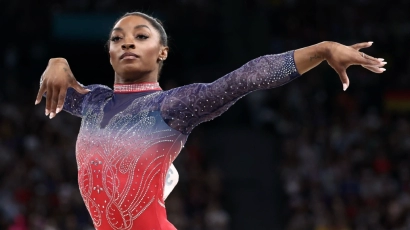So, we all know about ADHD from our handy article, right? We know that ADHD stands for Attention Deficit Hyperactivity Disorder. It’s a neurodevelopmental disorder and generally manifests in three characteristics: Inattentiveness, hyperactivity, and impulsivity. But what about high functioning ADHD?
High functioning ADHD is not a formal diagnosis. It’s not a subtype of ADHD, either. And if you’re living with high functioning ADHD, you’re still living with ADHD.
The difference is that the symptoms of high functioning ADHD may not impact your life as adversely. This could be due to ‘workarounds’ or compensation strategies that you’ve devised over the years. Or, it could be because your symptoms of ADHD have milder presentations than most.
All this can be pretty confusing, especially if you’re new to learning about the ADHD community! However, ONE Intervention is here to help. Today, we’re going to go through:
- What is high functioning ADHD
- Signs of high functioning ADHD
- Famous people with high-functioning ADHD.
We’ve also included loads of resources for extra reading in this article, if you’re interested. Stick around to find out more!

What Is High Functioning ADHD?
Put simply, high functioning ADHD is still ADHD. It’s just that in this case, ADHD does not have a significantly negative impact on the individual’s life. This is not to say that there are no symptoms of ADHD in the person’s life at all.
Instead, it could be because they’ve learned how to manage your ADHD with compensation strategies or workarounds. For example, a person with ADHD typically can be quite absentminded, causing them to forget a deadline and hand in their work late.
A person with high-functioning ADHD would still have trouble remembering the deadline set, but they’d also implement the compensation strategy of setting several notifications reminding them to complete and hand in their work.

Another reason why high functioning ADHD could have a less significant adverse impact is because the symptoms could be mild in some areas, and prominent in others. Or, the person could only experience specific ADHD symptoms.
It’s true that people with high functioning ADHD (and really, people with ADHD in general) can get degrees, work in highly successful careers, and be incredibly accomplished.
However, the point is that to do all of that, they have to work twice as hard as the average neurotypical person. They may make it look easy, but people with high functioning ADHD are still struggling. This is because, again, high-functioning ADHD is still ADHD.
In short, people with high functioning ADHD still struggle with impulsivity, inattentiveness and hyperactivity. It’s just that the symptoms are present to a lesser degree. Alternatively (or in addition to this) the individual has managed to come up with strategies that can help manage their ADHD more effectively.
What Are Some Signs Of High Functioning ADHD?
The symptoms of high-functioning ADHD can vary from person to person. However, there are a few signs that one can look out for. Some of these signs may seem completely unrelated, but when put together, they may be indicative of high functioning ADHD.
Workaholicism

People with high functioning ADHD may have a tendency to hyperfocus on their work. They could get lost in their work for hours at a time, to the point of neglecting self-care. During this space, they could ignore their loved ones and everything else but the need to be productive in their work.
Naturally, this results in increased work output. However, this rise in productivity is not due to more organised time management. Rather, it’s because people with high functioning ADHD seek simulation through their work. Hence, they work as if ‘driven by a motor’, often to unhealthy levels.
Alternatively, people with high functioning ADHD may be deemed as a workaholic because they need to put in that much extra work in order to keep up.
Remember how ADHD can have inattentive presentation?
Well, the same is true for people with high functioning ADHD. They can often find themselves distracted or zoning out. Not because they want to, but because their brains simply are structured differently from a neurotypical person, who may find it easier to concentrate. So, a person with high functioning ADHD may have to put in extra effort in order to make up for the hours lost, and this results in more time spent on work.
Being Unable To Relax

In a similar vein of logic, people with high functioning ADHD may find it harder to relax. They may feel a constant need to keep busy and achieve success. Of course, it’s quite normal to crave external validation. Similarly, it’s expected that people will want to feel useful and contribute to society in a productive manner.
However, people with high functioning ADHD can take this to the extreme. They may feel guilty when not working. In some cases, even the thought of relaxation may seem trivial, or they may feel anxious when resting.
According to this article by Choosing Therapy, people with ADHD often experience racing thoughts. This is when their mind kicks into overdrive and jumps from one thought to the next, constantly. It’s a pretty overwhelming experience, far beyond the usual anxiety that a neurotypical person might experience.
For people with high-functioning ADHD, these racing thoughts can cause their mind to feel restless even when they’re not working. Hence, it can be quite hard for them to relax.
Struggling With Self-Esteem

This article by Healthline breaks it down pretty well, but the short version is that people with ADHD have a higher tendency to experience self-esteem issues. They may feel that their ADHD symptoms are their own fault and can be resolved by just trying harder. Alternatively, they may feel that their ADHD is all ‘in their head.’
Of course, none of this is true. There is abundant research done by professionals to prove that ADHD is due to a difference in brain structure. It’s a real and valid neurodevelopmental disorder that can be supported with scientific evidence.
However, it can be difficult to unlearn the thought patterns of ADHD being ‘their own problem.’ Hence, this can lead to self-esteem issues for people with ADHD. And for people with high functioning ADHD, the struggle with self-esteem could be more severe.
This is because people with high functioning ADHD tend to be high achievers, as earlier discussed. Therefore, failure to reach what they feel they should be able to achieve can cause them to experience even more severe self-esteem issues.
To Note
The above are only a few signs of high functioning ADHD. Needless to say, all of the signs also apply to people with ADHD in general, since high functioning ADHD is also ADHD.
However, it should be noted that every person presents their symptoms of ADHD differently. For a more comprehensive list of symptoms, you might want to check out this article by Choosing Therapy as well.

All this being said, people with high functioning ADHD are still very much capable of achieving success. There are many famous people with ADHD who have put in extremely hard work to manage their symptoms and implement effective compensation strategies.
Who Are Some Famous People With ADHD?
Simone Biles

Simone Biles is an extremely accomplished American gymnast. She’s got a record breaking 19 World Championship medals, and 4 Olympic gold medals.
Part of the reason for Simone’s incredible success is that she’s learned how to effectively manage her ADHD, according to this article by LDRFA. She channels the hyperfocus into perfecting her routines and practises gymnastics to calm her restlessness. Of course, her ADHD is still an extremely real and valid struggle, but it’s also one of the reasons why she’s such an amazing athlete.
She describes her ADHD as “nothing to be ashamed of and nothing that I’m afraid to let people know.” This normalisation of ADHD is definitely something that we need more of in this world!
Mel B

The famous singer was rocketed to stardom in the band the Spice Girls. She’s a prolific English singer, songwriter and actress. Most recently, she’s been awarded an Honorary Doctorate by Leeds Beckett University for her career and work for the charity Women’s Aid.
After receiving her ADHD diagnosis, Mel was quoted as feeling “a huge sigh of relief… it means that you don’t feel as alone or as different or crazy anymore.”
This is certainly a common sentiment in the ADHD community! It can feel extremely validating to finally understand the scientific reasoning behind certain behaviours and thought patterns. Moreover, it helps that with the power of social media and the internet, it’s easier than ever now to connect with others who feel the same.
Karina Smirnoff

Karina Smirnoff is a professional ballroom dancer well known for her beauty and grace on Dancing With The Stars. Her list of stellar accomplishments include being a five-time U.S. National Champion, World Trophy Champion, and Asia Open Champion.
As a child, before receiving her ADHD diagnosis, she managed her inattention and hyperactivity through physical classes, such as figure skating and ballet. Dance continues to provide an outlet for her hyperactivity. However, in addition to that, she also receives treatment for her ADHD through medication and organisational strategies.
“With improvement on my ADHD symptoms,” she says, “I can focus on finishing what I start.” The full interview can be read here, on the Saturday Evening Post.
Final Thoughts
It’s important to note that high functioning ADHD doesn’t define one’s success. Nor is one’s success defined by high functioning ADHD. That being said, should you have any questions about high functioning ADHD or ADHD in general, feel free to drop us a comment below! 💬👇


